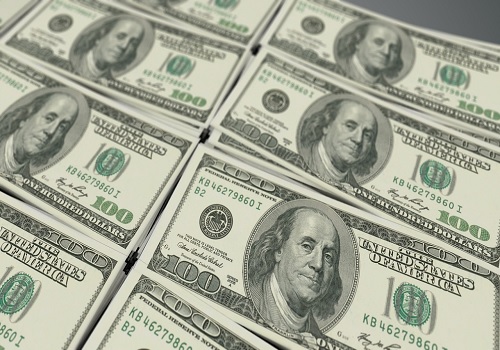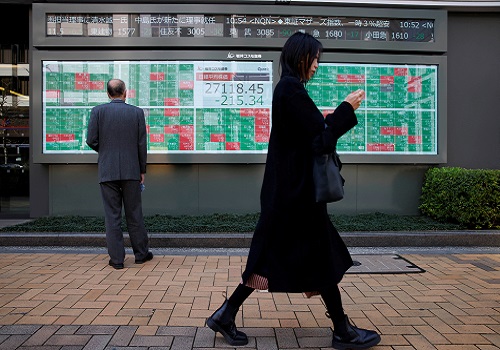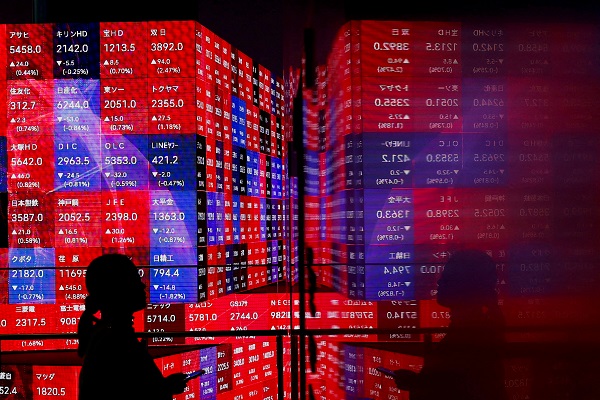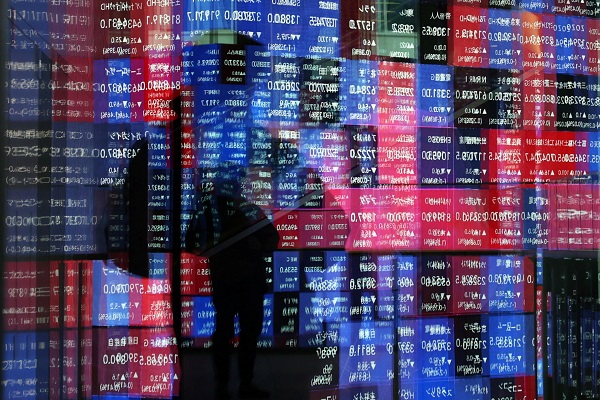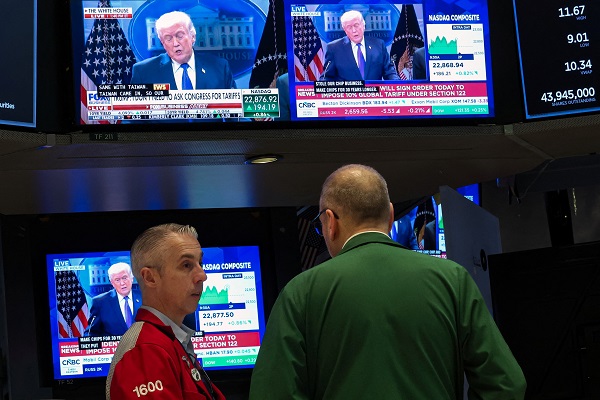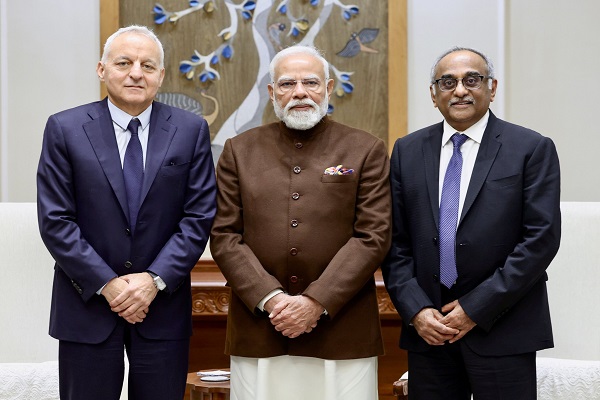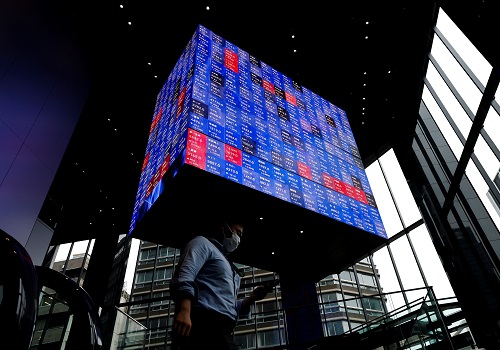Nikkei surges in boost to Asia as Donald Trump announces Japan trade deal

A rally in Japanese shares led Asian markets on Wednesday after President Donald Trump announced a trade deal with Japan and fuelled hopes of more to come, tempering the disappointment from U.S. earnings that highlighted the drag from higher tariffs.
Trump late on Tuesday said a trade deal with Tokyo will include Japan paying a lower 15% tariff on shipments to the U.S. It followed an agreement with the Philippines that will see the U.S. collect a 19% tariff rate on imports from there.
"Expectations for a breakthrough were low, so Trump’s announcement delivers a mild upside surprise — providing near-term relief for Japanese equities," said Charu Chanana, chief investment strategist at Saxo.
"Strategically, the deal allows Japan to sidestep immediate tariff escalation, while Trump's attention shifts elsewhere."
Japan's Nikkei jumped 2.6% on Wednesday as shares of automakers surged on news the deal lowers the auto tariff to 15%, from a proposed 25%. Mazda Motor rallied 17% while Toyota Motor jumped 11%.
Japanese government bonds slid, with the yields for 10-year JGBs up a whopping 8.5 bps at 1.585%, as the reduced uncertainty helped to clear the path for the Bank of Japan to resume interest rate hikes.
The reaction in the yen was more muted, eking out a small 0.1% gain to 146.42 per dollar. Traders are on edge as Japanese Prime Minister Shigeru Ishiba was planning to soon decide whether to step down after assessing the outcome of the trade deal, Yomiuri newspaper said.
Trump also said representatives from the European Union are coming for trade negotiations on Wednesday.
That stirred hopes for a deal with Europe, as markets were worried about broader EU countermeasures amid receding signs of a trade agreement with Washington.
EUROSTOXX 50 futures rose 0.8%, while Wall Street futures were up about 0.1%.
In another positive development, U.S. and Chinese officials will meet in Stockholm next week to discuss an extension to the August 12 deadline for negotiating a trade deal, Treasury Secretary Scott Bessent said.
Chinese blue-chips edged up 0.3% and Hong Kong's Hang Seng index gained 0.5%. MSCI's broadest index of Asia-Pacific shares outside Japan advanced 0.6%.
Overnight, Wall Street closed mixed as investors assessed a spate of earnings that pointed to signs that Trump's trade war is hitting corporate profit margins. General Motors tumbled 8.1% after the automaker reported a $1 billion hit from tariffs to its quarterly results.
Shares of RTX dropped 1.6% after the aerospace and defense giant took a hit from tariffs despite strong demand for its engines and aftermarket services.
Investors are now waiting for results from Tesla and Google's parent Alphabet - the Magnificent 7 stocks that have driven much of the market rally fuelled by AI optimism.
In the foreign exchange market, moves are a little muted with the dollar holding onto overnight losses along with lower Treasury yields. The dollar index was flat at 97.45, having slipped 0.4% overnight for its third straight day of declines.
The euro dipped 0.1% to $1.1739 after rising 0.5% overnight.
Benchmark 10-year U.S. Treasury yields ticked up 2 basis points to 4.3559%, after slipping 3 bps overnight, as Trump continued to lash out at Federal Reserve Chair Jerome Powell for not cutting interest rates, although Bessent said there was no need for him to step down immediately.
Bessent did say the Fed's vital independence on monetary policy is threatened by its "mandate creep" into non-policy areas and he called on the U.S. central bank to conduct an exhaustive review of those operations.
Oil prices gained a little on Wednesday. U.S. crude rose 0.4% to $65.60 per barrel, while Brent was at $68.88 per barrel, up 0.4%.
Spot gold prices were steady at $3,429 an ounce.















